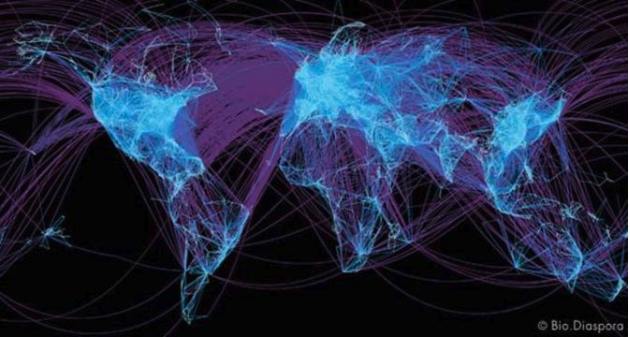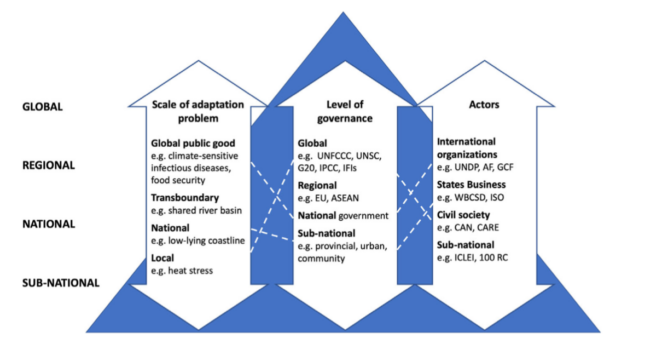Global adaptation governance: An emerging but contested domain

Introduction
Adaptation to climate change has steadily risen on global policy agendas and entered a new era with the 2015 Paris Agreement, which established a global goal on adaptation.
While this goal responds to calls to strengthen global governance of adaptation, it has not yet been operationalized. Few studies take stock of current global adaptation governance to inform the implementation of the goal.
Global adaptation governance is defined in this article as: occurring when state and non‐state actors in the global (including transnational) sphere authoritatively and intentionally shape the actions of constituents towards climate change adaptation as a public goal.
Although empirical evidence is scant, the authors propose that global adaptation governance is indeed emerging. Further strengthening of it, however, appears to be contested.
This paper was published in WIREs Climate Change on 4th September 2019.
*The text below provides a summary of the research. Download the full report on the right-hand column for much more information.
An Emerging Domain

Figure 1 illustrates how it is necessary to specify whether we focus on (a) level of governance, (b) scale of the adaptation problem, or (c) type of actors when examining global governance.
The paper states that a global adaptation governance has evolved, from non-existent in early 1990s to a clearly emerging governance domain today.
We can observe predominantly state actors, but increasingly also non-state actors, engaging in the global and transnational sphere to intentionally shape the actions of constituents toward climate change adaptation as a public goal.
The effectiveness of these efforts for achieving the goal of adaptation, however, appears limited so far but requires more evidence and evaluation.
Challenges
The paper discusses grounds for contesting global adaptation governance:
- Measurement of progress towards adaptation as a public goal at the global level is severely challenged by the ambiguity of adaptation and the lack of distinct metrics.
- The lack of clear global‐level problem‐framing, or recognition of adaptation as a global public good, has meant that global governance initiatives have lacked legitimacy.
- In liberal democracies, a public goal normally comes with an expectation of criteria and metrics for measuring progress, to hold actors and institutions accountable.
- To what extent is adaptation a public goal, to be pursued through global governance?
Lessons Learnt
- Global governance of adaptation has emerged since the 1990s – however, while adaptation governance efforts have expanded, they do not appear to have significantly strengthened this domain of governance.
- Adaptation is still not a clear public goal, with ambiguities around how adaptation should be addressed.
- There is still uncertainty around under what circumstances and to what extend global-level governance of adaptation is required.
- There are two reasons for considering strengthened global governance: (a) transboundary and teleconnected climate risks, and associated interdependencies in adaptation and (b) situations where adaptation has clear global public good properties and need coordinated responses.

Comments
There is no contentYou must be logged in to reply.